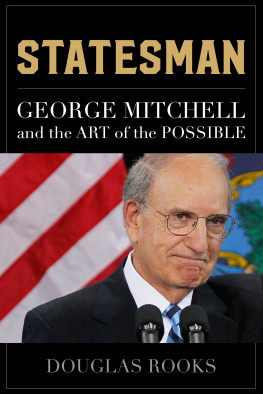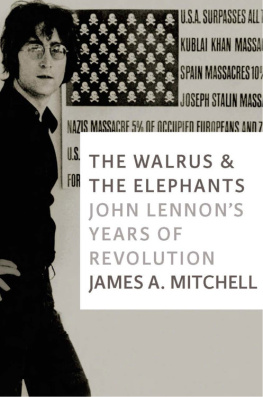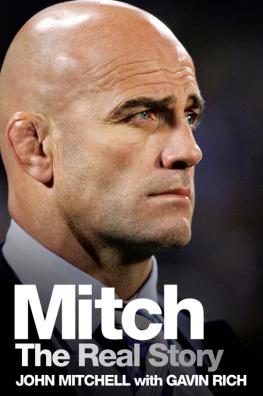James Rosen - The Strong Man: John Mitchell and the Secrets of Watergate
Here you can read online James Rosen - The Strong Man: John Mitchell and the Secrets of Watergate full text of the book (entire story) in english for free. Download pdf and epub, get meaning, cover and reviews about this ebook. year: 2008, publisher: Doubleday, genre: Politics. Description of the work, (preface) as well as reviews are available. Best literature library LitArk.com created for fans of good reading and offers a wide selection of genres:
Romance novel
Science fiction
Adventure
Detective
Science
History
Home and family
Prose
Art
Politics
Computer
Non-fiction
Religion
Business
Children
Humor
Choose a favorite category and find really read worthwhile books. Enjoy immersion in the world of imagination, feel the emotions of the characters or learn something new for yourself, make an fascinating discovery.
- Book:The Strong Man: John Mitchell and the Secrets of Watergate
- Author:
- Publisher:Doubleday
- Genre:
- Year:2008
- Rating:5 / 5
- Favourites:Add to favourites
- Your mark:
The Strong Man: John Mitchell and the Secrets of Watergate: summary, description and annotation
We offer to read an annotation, description, summary or preface (depends on what the author of the book "The Strong Man: John Mitchell and the Secrets of Watergate" wrote himself). If you haven't found the necessary information about the book — write in the comments, we will try to find it.
The Strong Man is the first full-scale biography of John N. Mitchell, the central figure in the rise and ruin of Richard Nixon and the highest-ranking American official ever convicted on criminal charges.
As U.S. attorney general from 1969 to 1972, John Mitchell stood at the center of the upheavals of the late sixties. The most powerful man in the Nixon cabinet, a confident troubleshooter, Mitchell championed law and order against the bomb-throwers of the antiwar movement, desegregated the Souths public schools, restored calm after the killings at Kent State, and steered the commander-in-chief through the Pentagon Papers and Joint Chiefs spying crises. After leaving office, Mitchell survived the ITT and Vesco scandalsbut was ultimately destroyed by Watergate.
With a novelists skill, James Rosen traces Mitchells early life and career from his Long Island boyhood to his mastery of Wall Street, where Mitchells innovations in municipal finance made him a power broker to the Rockefellers and mayors and governors in all fifty states. After merging law firms with Richard Nixon, Mitchell brilliantly managed Nixons 1968 presidential campaign and, at his urging, reluctantly agreed to serve as attorney general. With his steely demeanor and trademark pipe, Mitchell commanded awe throughout the government as Nixons most trusted adviser, the only man in Washington who could say no to the president.
Chronicling the collapse of the Nixon presidency, The Strong Man follows Americas former top cop on his singular odyssey through the criminal justice systema tortuous maze of camera crews, congressional hearings, special prosecutors, and federal trials. The path led, ultimately, to a prison cell in Montgomery, Alabama, where Mitchell was welcomed into federal custody by the same men he had appointed to office. Rosen also reveals the dark truth about Mitchells marriage to the flamboyant and volatile Martha Mitchell: her slide into alcoholism and madness, their bitter divorce, and the toll it all took on their daughter, Marty.
Based on 250 original interviews and hundreds of thousands of previously unpublished documents and tapes, The Strong Man resolves definitively the central mysteries of the Nixon era: the true purpose of the Watergate break-in, who ordered it, the hidden role played by the Central Intelligence Agency, and those behind the cover-up.
A landmark of history and biography, The Strong Man is that rarest of books: both a model of scholarly research and savvy analysis and a masterful literary achievement.
James Rosen: author's other books
Who wrote The Strong Man: John Mitchell and the Secrets of Watergate? Find out the surname, the name of the author of the book and a list of all author's works by series.




